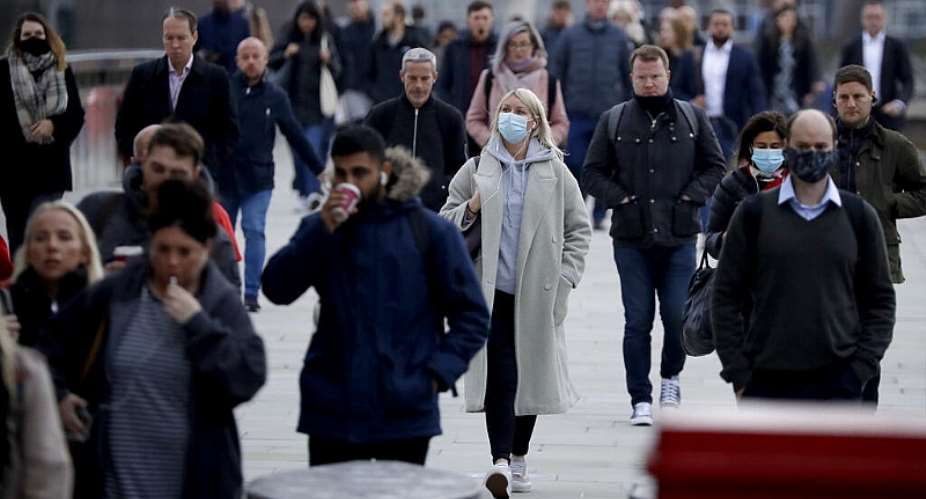A US study of a man who had recovered from Covid-19 being reinfected with a more serious case has cast doubt on the prospect of building lasting immunity to the new coronavirus, as the World Health Organization warned that relying on herd immunity as a public health strategy was "unethical".
A study published in medical journal The Lancet on Tuesday backs up the widely suspected hypothesis that it is possible to catch the coronavirus more than once.
The study charts a case of reinfection of an otherwise healthy 25-year-old man in the US state of Nevada who was infected with two variants of SARS-CoV-2, the virus which causes the Covid-19 disease, within 48 days, with the second requiring hospitalisation and oxygen support.
Now recovered, the man was the fifth known case of reinfection. The study notes four other cases of reinfection have been confirmed globally, in Belgium, the Netherlands, Hong Kong and Ecuador.
“The possibility of reinfections could have significant implications for our understanding of Covid-19 immunity,” lead author Mark Pandori of the Nevada State Public Health Laboratory told AFP agency.
“We need more research to understand how long immunity may last for people exposed to SARS-CoV-2 and why some of these second infections, while rare, are presenting as more severe.”
Authors of the paper said the Nevada patient's more serious second infection might be due to incurring a larger viral load or a more virulent variation of the new coronavirus.
Another hypothesis is a case of antibody dependent enhancement, which happens when antibodies make subsequent infections worse. The mechanism is known to happen with dengue fever.
Researchers pointed out that reinfection cases are rare, with only five cases so far from tens of millions of confirmed cases worldwide.
Importance of understanding immunity
Previous studies have shown even mild Covid-19 infections produce protective antibodies, though it remains unclear how long the resistance lasts.
Understanding immunity is important for the evolution of the pandemic and weighs upon prospects of developing an effective vaccine, because vaccines trigger immune response to a pathogen by arming the body with antibodies to fight off future infections.
While infection or vaccination for some diseases, such as measles, confers lifelong immunity, resistance to other pathogens may be fleeting. To date, no vaccine has been developed for a coronavirus.
Even if only five cases of reinfection have been confirmed, scientists suspect some confirmed cases may be second infections due to first cases being asymptomatic or unable to have been tested due to unavailability of tests.
Herd immunity 'unethical'
Ultimately the study showed how little information is available to know what it will be like to live with SARS-CoV-2 in the longer term – a point emphasised by the head of the World Health Organization (WHO) in a warning against strategies to seek herd immunity to Covid-19 on Monday.
“Herd immunity is a concept used for vaccination, in which a population can be protected from a certain virus if a threshold of vaccination is reached,” WHO chief Tedros Adhanom Ghebreyesus told a virtual press briefing.
Herd immunity refers to a threshold beyond which a population is protected from a virus. For measles, if 95 percent of a population is vaccinated, the other 5 percent is protected. The threshold for polio is estimated at 80 percent.
Some scientists have estimated herd immunity to Covid-19 could be attained at 60-70 percent. The WHO estimates less than 10 percent of the populations in most countries have contracted the disease.
“Herd immunity is achieved by protecting people from a virus, not by exposing them to it,” he said. “Never in the history of public health has herd immunity been used as a strategy for responding to an outbreak, let along a pandemic.”
Relying on naturally obtained herd immunity in a pandemic that killed over one million people and infected at least 37.5 million others would be “scientifically and ethically problematic,” Tedros said.
“Allowing a dangerous virus that we don't fully understand to run free is simply unethical. It's not an option.”
(with newswires)





 TUC tells informal sector employers to pay their employees the minimum wage
TUC tells informal sector employers to pay their employees the minimum wage
 Prof. Marfo urges good civilian-security relations to promote peace
Prof. Marfo urges good civilian-security relations to promote peace
 I was nearly jailed because of NPP; I’m still ‘pained’ — Hopeson Adorye
I was nearly jailed because of NPP; I’m still ‘pained’ — Hopeson Adorye
 Rising against NPP after being a minister for 15 years is a sin; God will judge ...
Rising against NPP after being a minister for 15 years is a sin; God will judge ...
 Cecilia Dapaah: Reasons behind AG’s advice to EOCO not grounded in law – Martin ...
Cecilia Dapaah: Reasons behind AG’s advice to EOCO not grounded in law – Martin ...
 NPP should have reported Kingsley Nyarko’s conduct to police – Inusah Fuseini
NPP should have reported Kingsley Nyarko’s conduct to police – Inusah Fuseini
 Akufo-Addo cuts sod for MIIF Technical Training Centre
Akufo-Addo cuts sod for MIIF Technical Training Centre
 NPP didn’t struggle to win Ejisu by-election – Samuel Ayeh-Paye
NPP didn’t struggle to win Ejisu by-election – Samuel Ayeh-Paye
 A/R: Achiase Chief arrested for acid attack on community members
A/R: Achiase Chief arrested for acid attack on community members
 Naa Ayemoede returns to school
Naa Ayemoede returns to school
